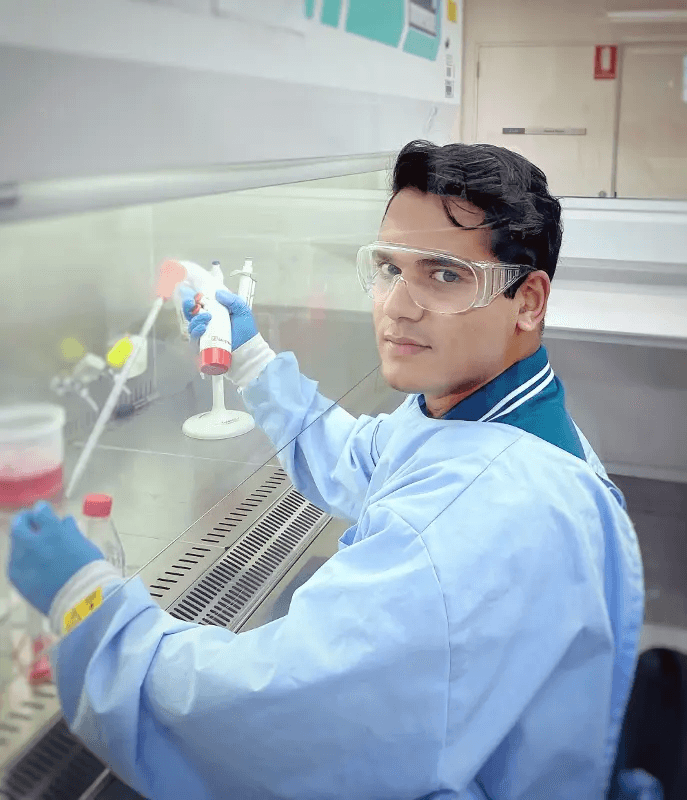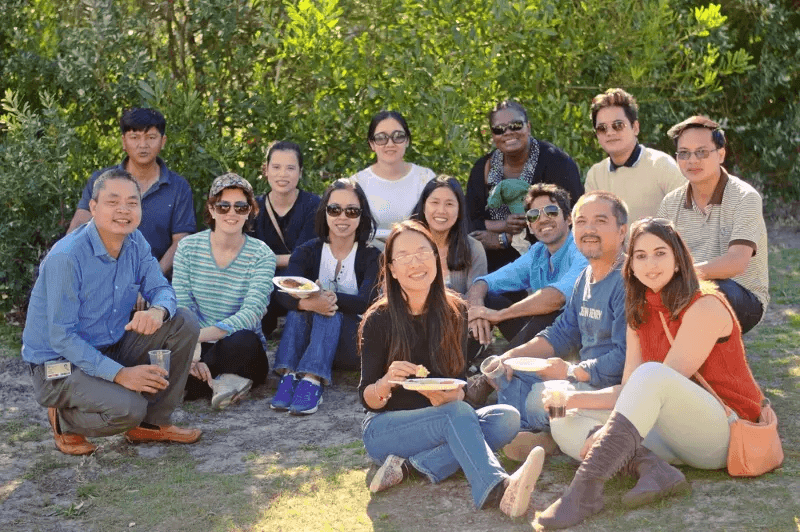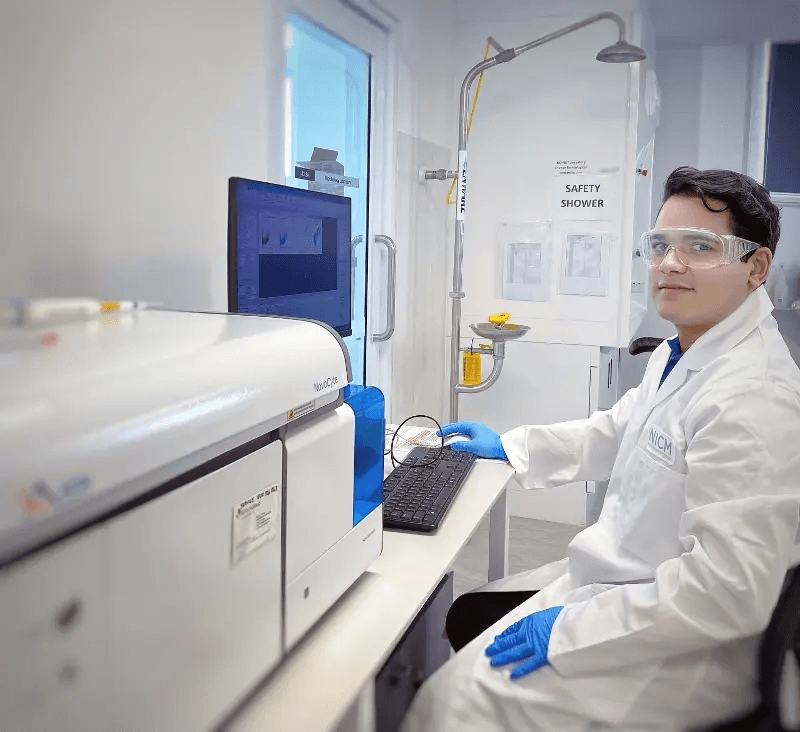
Dr Smrita Chaudhury
Born in the silk weavers town of Sualkuchi and raised in Tezpur (Assam), Deep Jyoti Bhuyan studied in the Assamese language until 10th grade. He recalls, “it was a steep learning curve acquiring scientific concepts in English which was a new language in class 11 and 12.” He remembers enquiring the meaning of the word ‘molecules’ to the chemistry teacher in front of his English-fluent peers, and the patience with which his questions were answered. He strongly believes, “students must be encouraged to voice doubts as there are no unintelligent questions.” His personal experience of transitioning from an Assamese to an English medium school has inspired him to conduct outreach programs with higher secondary students in a similar situation.

Deep Jyoti at PC2 lab of NICM Health Research Institute, 2020.
Rather than studying traditional biological science courses, he was keen on studying biomedical science which was unavailable in Assam in 2005. Fortunately, his family supported his studies for a bachelor’s in biotechnology at the RS College of Management and Science under Bangalore University. He soon developed an interest in microbiology and decided to pursue a master’s in science (MSc) in Applied Microbiology at the Vellore Institute of Technology (VIT).
He credits VIT as the stepping-stone to his scientific career through comprehensive academic courses and opportunities to conduct research for his degree requirements. During his MSc thesis, Deep Jyoti explored the anti-fungal properties of traditional Assamese and Ayurvedic herbs in agriculture at the Defence Research Laboratory ( DRL) in Tezpur. After completing his MSc, he worked as a Senior Research Fellow at the Assam Agricultural University laboratory and researched on the anti-microbicidal and antioxidant properties of herbs used in rice beer production.
While at VIT, he was among the three students chosen for a one-week Graduate Training Program jointly funded by the Harvard Medical School (USA) and the Friedrich-Alexander Universität Erlangen-Nürnberg (Germany). The experience of interacting with scientists working in well-equipped laboratories on cutting-edge science in Germany precipitated the idea of pursuing a PhD overseas.
Deep Jyoti remembers, “information on pursuing a PhD wasn’t readily available on the internet in 2011. I was lost about where to begin working on my dream of a PhD overseas.” He fondly speaks of the pledge he had made with his group of ten closest friends at VIT, “go overseas for PhD and become scientists.” Little did he envision that the “pact” would snowball into an unwavering support group that helped all of them develop research ideas, write statements of research, challenge each other via scientific deliberations, and prepare for PhD interviews. Beaming with pride he said, “a decade later all ten friends have become scientists across the globe.”

Deep Jyoti with fellow PhD students at the University of Newcastle, Ourimbah, NSW, 2017
Deep Jyoti was among the 7 students selected from 500 applicants to receive the International Postgraduate Research Scholarship (UNIPRS) and Central Postgraduate Research Scholarship to pursue his PhD. He studied the anticancer properties of extracts from nine different species of Australian Eucalyptus for pancreatic cancer, at the University of Newcastle (Australia). Smiling radiantly, he recalls publishing his discoveries in 12 peer-reviewed journals and one book chapter during his PhD.
After accomplishing his Ph.D., Deep Jyoti continued to study novel anticancer treatments. His current research on propolis which is a natural product produced by honey bees to build, mend, and protect the beehive from predators could pave way for a novel treatment for breast, colon, and pancreatic cancer. He currently works as a post-doctoral researcher at the NICM Health Research Institute, Western Sydney University (WSU), Australia and has previously worked on an Australian Research Council-funded Linkage project. He notes, “many years of research are required before medicines reach the patients. Through my current work, I want to repurpose chemotherapy by using a combination of natural compounds with existing chemotherapeutics to reduce dosages, alleviate side-effects, and better the quality of life for cancer patients.”
Reminiscing his academic journey from Assam in North-East India to Australia he reckons, “coming back to North-East India and successfully establishing a lab would depend on strong professional networks and achieving research grants from funding bodies such as the Ministry of Science & Technology, India.”

Photo taken at PC2 lab of NICM Health Research Institute, 2020.
Whether setting up a lab or pursuing studies he observes it is crucial to have discussions to broaden one’s horizon. He speaks of a gap in forums for discussion for the North-East Indian students, who have innovative ideas but are ill-equipped to navigate towards tertiary education.
To assist students to accomplish their dream of tertiary education in science, Deep Jyoti in partnership with his dear friend Jagannath Biswakarma, a scientist at the University of Basel, Switzerland conceptualised their joint venture: “The Science DJ.” Fortnightly, both conduct live interactive sessions with students on Facebook and YouTube Channel on topics such as preparation for Ph.D., international scholarships, and career avenues in science.
Deep Jyoti remembers feeling overwhelmed to generate scientifically coherent data and match strides with colleagues. Thus, he frequently mentors inexperienced newcomers. He views it as a 2-way street wherein both mentors and mentees continuously learn from each other. His advice to students, “nothing grows in a comfort zone. So, work hard, push your boundaries, and dream big.”
Acknowledgement: We thank Deep Jyoti Bhuyan for allowing us to use these pictures for publishing on SciRio.




